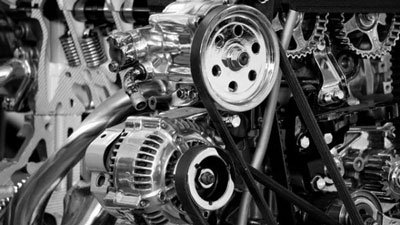
Today’s modern vehicles are basically computers, full of intricate moving parts that have been perfected over the decades. We rely on these wondrous machines in our everyday life, and while we appreciate their ability to get us comfortably from point A to point B, most of us have only a rudimentary knowledge of keeping them running. There are many myths about auto repair, but your Denver car repair experts at Mancinelli’s are here to debunk those misconceptions.
Here are five of the most persistent myths about auto repair.
Myth #1: Cars have become so sophisticated that regular maintenance is unnecessary.
While it’s true cars have become much more sophisticated in recent years, things can still go wrong. Although minor items, such as a tire that has too little air or wheels that have been knocked slightly out of alignment, won’t impact your car’s performance too much, they can lead to bigger problems over time. It’s important to bring your car into the shop for routine maintenance so small problems can be addressed—and fixed—before they become bigger ones.
Myth #2: Using less expensive fuel can harm your car’s engine.
This might sound perfectly reasonable, but there is simply to evidence of this being true. There is certainly truth to the fact that in the auto industry, you get what you pay for. A car that is more expensive, for example, was probably built by a more reliable manufacturer with higher end parts. More expensive motor oils usually perform better than the less expensive variety. Yes, more expensive gasoline has additives that can be useful for keeping your engine in good shape for a longer amount of time, but there is no reason to believe that the less expensive gas will harm your engine.
Myth #3: An automatic transmission is less efficient than a manual transmission.
This used to be true in the very early days of automatic transmissions, before they were as efficient and well designed as they are today. But as automatic transmissions have been improved, they are comparable to manual transmissions in terms of fuel efficiency.
Myth #4: Your car needs an oil change every 3,000 miles.
This has been conventional advice for many years, but if you take a look at your car’s owner’s manual, you’ll probably find that changing the oil every 5,000 or even 10,000 is what is recommended. Cars manufactured in the past decade or so have better designed engines and oil has better chemical composition, meaning the oil lasts longer between changes.
Myth #5: Your car’s oil never needs to be changed.
Some people have taken the fact that oil changes don’t need to happen as frequently to mean they never need to happen. Even if your car’s manufacturer recommends changing the oil every 10,000 miles, that doesn’t mean you should write off oil changes completely. As impressive as engines and oil are today, this doesn’t mean they are unbreakable. If you want your car to last, you need to change the oil on a regular schedule.
If you’re in need of a tune-up, an oil change, or any kind of regular service, schedule an appointment with Mancinelli’s Auto Repair Center. We’ll take care of you and your vehicle.